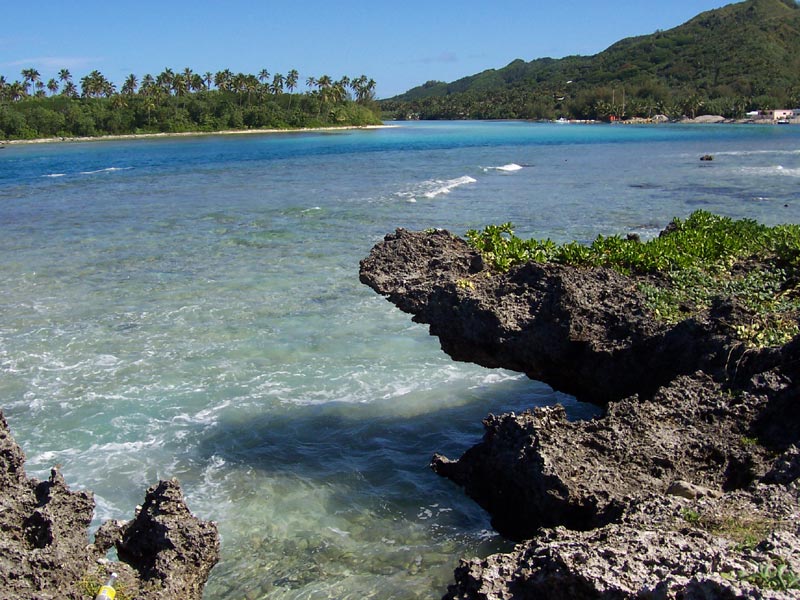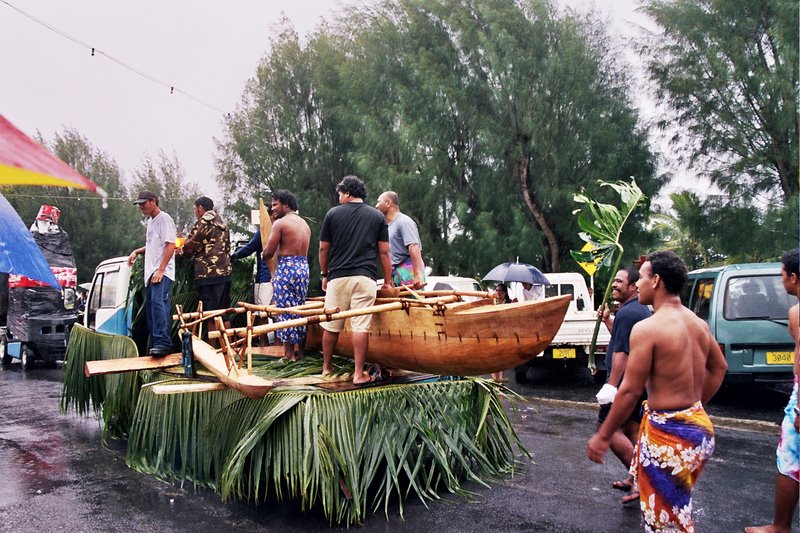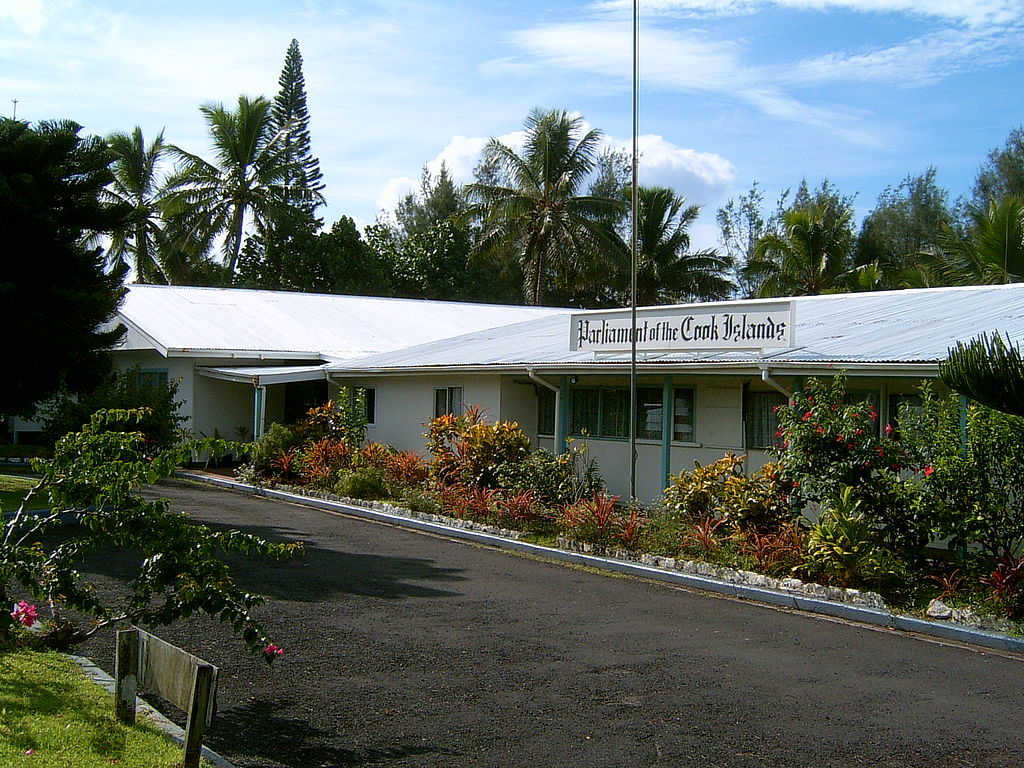The 'accepted' history of the relations between the Ariki of the Cook Islands and the UK
At present the relationship between the Ariki and the UK is at an all time low, however, it wasn't always like this. In 1888 things were very different, but first we'll go further back:
The Cook Islands were first settled in the 6th century CE by Polynesian people who migrated from Tahiti, an island 1154 km to the northeast of Cook Islands.
Spanish ships visited the islands in the 16th century; the first written record of contact with the islands came with the sighting of Pukapuka by Spanish sailor Alvaro de Mendana de Neira in 1595 who called it San Bernardo (Saint Bernard). Pedro Fernandes de Queiros, a Portuguese captain working for the Spanish crown, made the first recorded European landing in the islands when he set foot on Rakahanga in 1606, calling it Gente Hermosa (Beautiful People).

"Rarotonga beach" by User Tristanb on en.wikipedia. Licensed under CC BY-SA 3.0 via Wikimedia Commons.
British navigator Captain James Cook arrived in 1773 and 1777 and named the islands the Hervey Islands; the name "Cook Islands", in honour of Cook, appeared on a Russian naval chart published in the 1820s.
In 1813 John Williams, a missionary on the Endeavour (not the same ship as Cook's) made the first recorded sighting of Rarotonga. The first recorded landing on Rarotonga by Europeans was in 1814 by the Cumberland; trouble broke out between the sailors and the Islanders and many were killed on both sides. The islands saw no more Europeans until missionaries arrived from England in 1821. Christianity quickly took hold in the culture and many islanders continue to be Christian believers today.
The British Involvement...
Makea Takau Ariki (1839 - 1911) was a sovereign of the Cook Islands. She was the ariki (queen) of the dynasty Makea Nui (Great Makea), one of the three chiefdoms of the tribe Te Au O Tonga (The mist of the south) on the island of Rarotonga. She succeeded her uncle Makea Abera Ariki in 1871. Her reign lasted forty years during a crucial time in the history of Rarotonga and the Cook Islands. It was under her reign that the Cook Islands became a British protectorate in 1888. Below, we have a copy of the original report on the subject:
This was due largely to community fears that France might occupy the territory as it had Tahiti. In 1901 the New Zealand Government decided to annexe the country despite opposition from the country's traditional kings and queens. As many of the islands were independent and ruled by local kings or queens, the Cook Islands had no federal statutory law to decide the constitutional constraints regarding whether to agree to the country's annexation. When the British Nationality and New Zealand Citizenship Act 1948 came into effect on 1 January 1949, Cook Islanders who were British subjects gained New Zealand citizenship. The country remained a New Zealand protectorate until 1965, when the New Zealand Government decided to offer self-governing status to its colony. In that year, Albert Henry of the Cook Islands Party was elected as the first Premier. Henry led the country until he was accused of vote-rigging.

"Rarotonga-8-Maeva-Nui" by Ian Sewell - http://www.ianandwendy.com/OtherTrips/SouthPacific/Easter-Island/index.htm. Licensed under CC BY-SA 3.0 via Wikimedia Commons.
Politics and foreign relations

"Parliament of the Cook Islands - 2006" by Mr Bullitt - Photo taken by Mr Bullitt from Sweden. Licensed under CC BY 2.5 via Wikimedia Commons.
Currently, the Cook Islands is a representative democracy with a parliamentary system in an associated state relationship with New Zealand. Executive power is exercised by the government, with the Chief Minister as head of government. Legislative power is vested in both the government and the Parliament of the Cook Islands. There is a pluriform multi-party system. The Judiciary is independent of the executive and the legislature. The Head of State is the Queen of New Zealand, who is represented in the Cook Islands by the Queen's Representative.
The islands are self-governing in "free association" with New Zealand. New Zealand retains primary responsibility for external affairs, with consultation with the Cook Islands government. Cook Islands nationals are citizens of New Zealand and can receive New Zealand government services, but the reverse is not true; New Zealand citizens are not Cook Islands nationals. Despite this, as of 2014, the Cook Islands had diplomatic relations in its own name with 43 other countries. The Cook Islands is not a United Nations member state, but, along with Niue, has had their "full treaty-making capacity" recognised by United Nations Secretariat, and is a full member of the WHO and UNESCO UN specialised agencies, is an associate member of the Economic and Social Commission for Asia and the Pacific (UNESCAP) and a Member of the Assembly of States of the International Criminal Court.